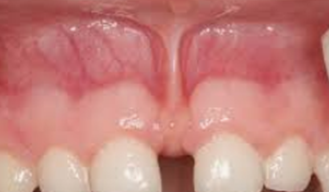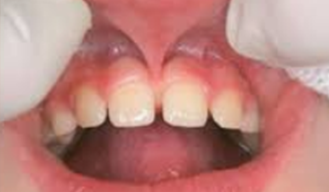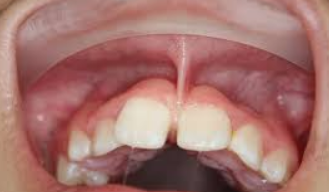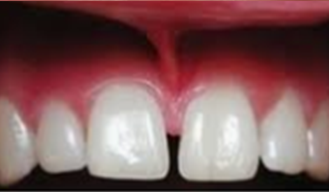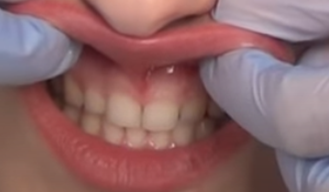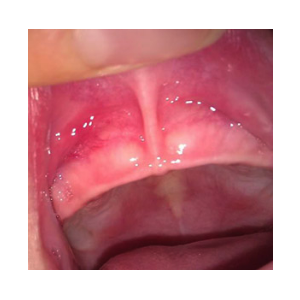
Lip Tie Symptoms
Related to tongue tie (and its posterior hidden variant) which may cause problems with breastfeeding, upper lip tie is when the upper lip is tethered to the upper gum.
In older children and adolescents, an upper lip tie can be associated with a gap between the front teeth.
Though most infants have some degree of upper lip tie, when it becomes large and tight enough, it may prevent the upper lip from flaring out or curling up which is essential for breastfeeding in order to create an adequate seal with the breast. Also, some infants with upper lip tie will exhibit an upper lip crease with the skin turning pale in an attempt to flare up during breastfeeding.
If the upper lip tie is tight enough, an infant may have trouble feeding even from a bottle.
Symptoms include:
INFANTS
- Poor latch, unable to sustain a latch
- Colic & excessive gassiness
- The baby often loss suction whilst feeding and sucks in air
- Reflux
- Difficulty with adequate milk intake
- Poor weight gain
- A clicking sound may be heard whilst the baby is feeding
- Falling asleep on the breast
- Extended nursing episodes
- Unable to develop a deep enough latch
- Early weaning from the breast
- Tongue cannot be moved sideways
- Tongue cannot protrude beyond the baby’s lips
- Tongue tip may be notched or heart-shaped
- Restricted mobility interferes with bottle feeding
- Gap between the front teeth
- When extended, the tongue tip may look flat or square instead of pointed
- Difficult for babies to attach to the breast or bottle correctly as it is harder for them to maintain a good seal
- Restrict movement of the upper lip preventing it from being able to flange or ‘pull out’
CHILDREN
- Inability to chew age appropriate solid foods
- Gagging, choking or vomiting foods
- Persisting food fads
- Difficulties related to dental hygiene
- Persistence of dribbling
- Delayed development of speech
- Deterioration in speech
- Behaviour problems
- Dental problems starting to appear
- Loss of self confidence because they feel and sound ‘different’
- Airway issues
- Mouth breathing
- Snoring
ADULTS
- Inability to open the mouth widely affects speech and eating habits.
- Always having to watch their speech
- Inability to speak clearly when talking fast/loud/soft
- Difficulty talking after even moderate amount of alcohol
- Clicky and/or painful jaws
- Migraines
- Protrusion of the lower jaws
- Multiple effects in work situations.
- Effects on social situations, eating out, kissing, relationships
- Dental health, a tendency to have inflamed gums, and increased need for fillings and extractions
- Sensitivity about personal appearance
- Emotional factors resulting in rising level of stress
- Tongue tie in the elderly often makes it difficult to keep a denture in place.
A good seal helps the baby draw the nipple deeply into the mouth and assists in the suck in order to swallow the milk produced by the breast. When a good seal is absent, an excessive amount of air is introduced into the baby’s mouth which is also swallowed along with the milk causing a too-gassy baby. Further, lack of a good seal makes it more difficult for the baby to maintain the nipple’s position in the mouth making for a prolonged and uncomfortable feeding.
Here are examples of an upper lip tie:
BEFORE
AFTER
